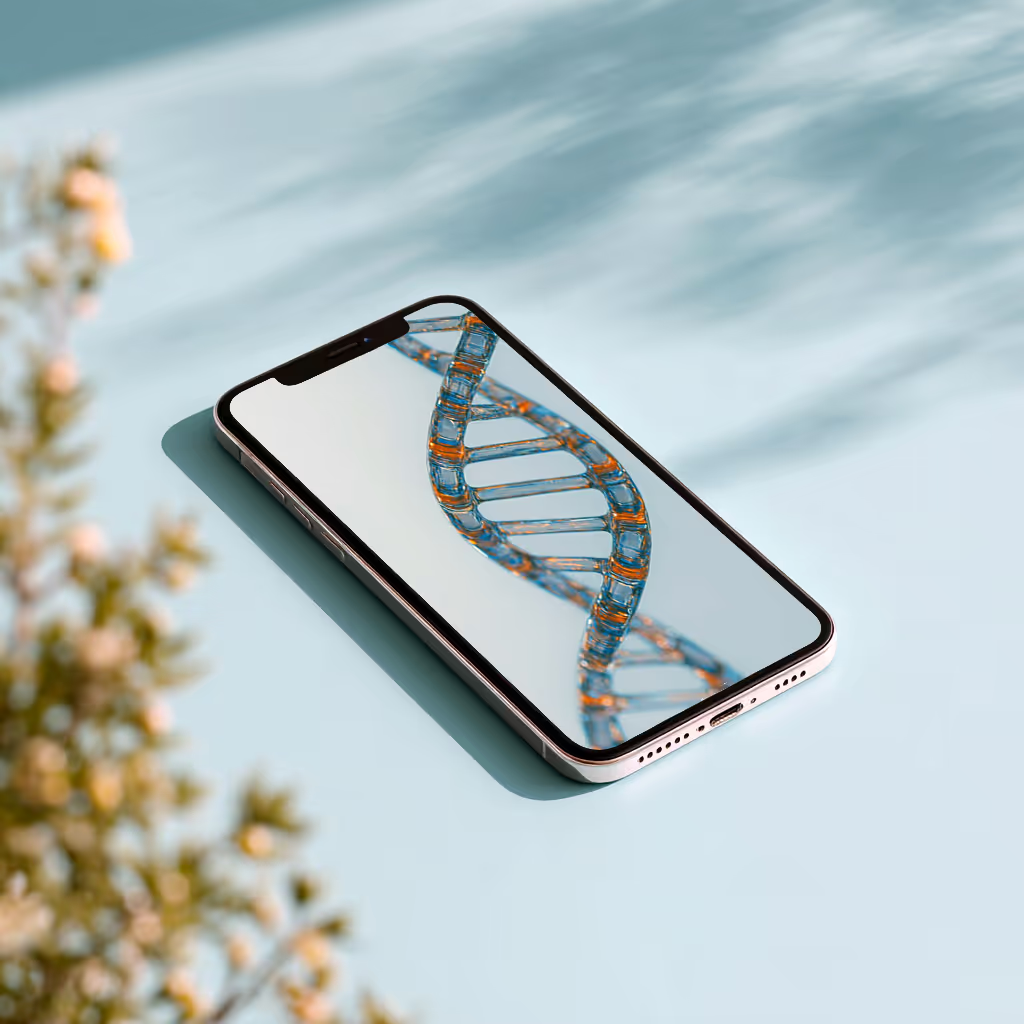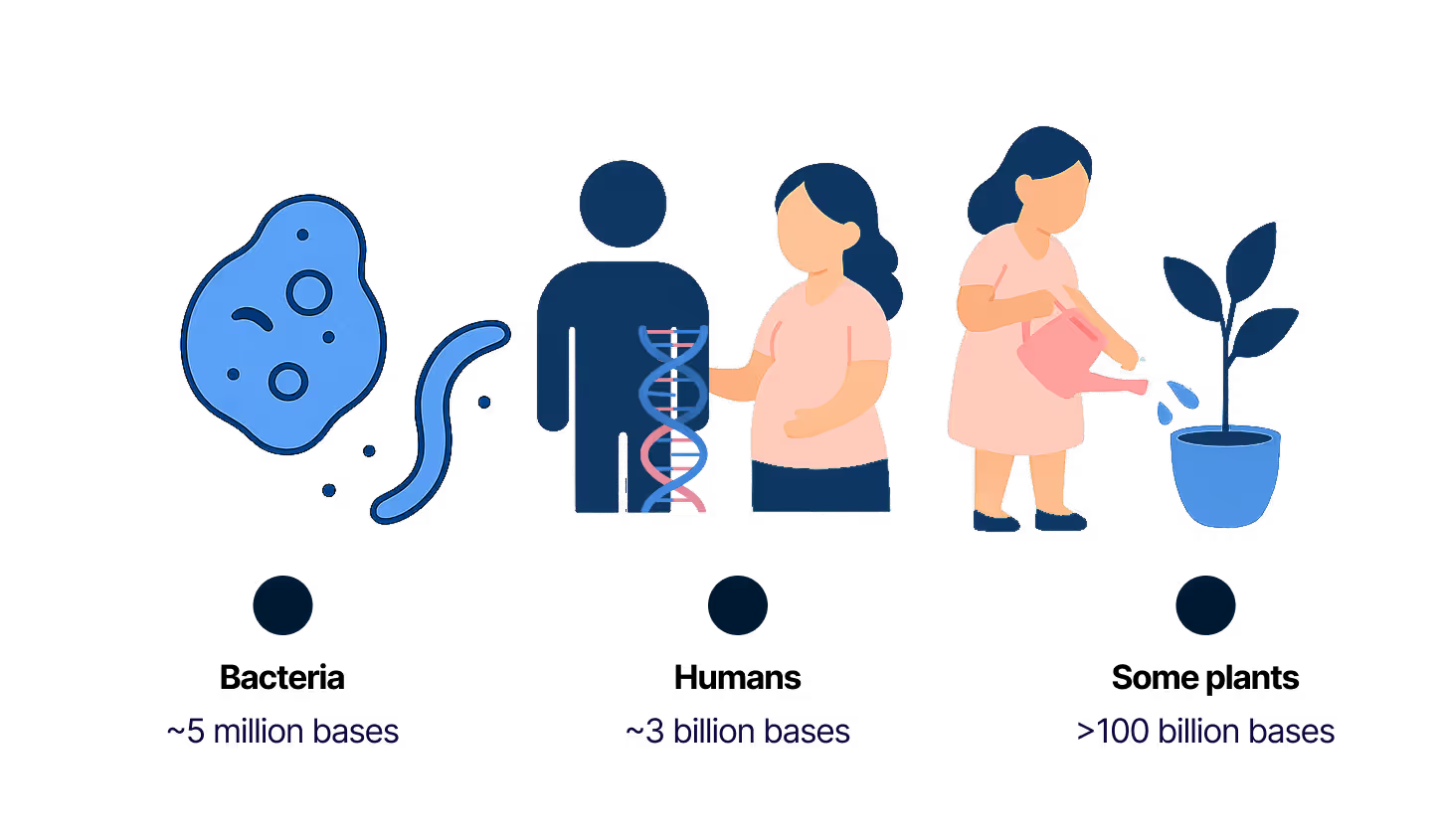
Our genetic testing can reveal powerful insights about your health. We offer multiple options of Carrier Screening, Cancer Screening and NIPT.

Use responsibly. T&Cs & late fees apply at clearpay.co.uk/terms

Trusted specialists



Speak to our expert geneticists, design your personalised test

Get your test through the mail, easy oral self-swab

Get your detailed report and recommendations

At Jeen, we focus on health, not hair colour. Our genetic testing uses 50x sequencing depth (NGS) for greater accuracy and confidence in detecting inherited conditions.

DNA is broken into small fragments, sequenced, and computationally assemble into the full genome.

Sequencing depth is how many times your DNA is read. Higher depth = more accurate results, lower depth = risk of missed mutations.

Larger genomes (like humans) need more sequencing reads. That’s why high-depth testing matters—it ensures nothing is missed.
Not all genetic tests are created equal. At Jeen, we use 50x sequencing coverage, which means each section of your DNA is read around 50 times. Here’s why it makes a difference:
Bigger genome → more data needed
Higher depth → better accuracy
Balance cost vs. detail!
Have questions? We’re here to help. Genetic testing can feel overwhelming, but it doesn’t have to be. Our genetic counsellors are here to walk you through your options, explain the science in plain English, and help you decide if testing is right for you.
Sensitivity and specificity help you understand how reliable a test is. A test with high sensitivity catches more true positives, and one with high specificity avoids false alarms. Together, they help ensure your results are trustworthy.
Not quite. Even highly accurate tests need interpretation. A genetic counsellor helps explain what your result means for you and your family — and whether you need any follow-up or additional screening.
These metrics help determine a test's accuracy. High sensitivity ensures most carriers are identified, while high specificity ensures non-carriers aren't misdiagnosed. Together, they provide a comprehensive view of a test's reliability.
Sensitivity measures how well a test identifies true positives among all who have the condition, while PPV assesses the likelihood that a positive test result is a true positive. Sensitivity is intrinsic to the test, whereas PPV is influenced by the condition's prevalence in the population.
Several things can influence test accuracy — including how common the gene variant is in the population (prevalence), the quality of the lab, and even how the sample was collected. That’s why expert-designed tests and genetic counselling matter.
Test stats like sensitivity or PPV can change based on the population being tested, the condition being looked for, and how the test is used. That’s why context matters — Jeen’s team explains your results in a way that fits your unique case.
Yes. A test designed to catch all potential cases (high sensitivity) might also capture individuals without the condition, leading to false positives and thus lower specificity. Balancing both metrics is crucial for accurate testing.
Yes – and it’s a key part of your journey with Jeen. Our genetic counsellors are here to help you understand what your results mean and guide you through everything, including terms like sensitivity and specificity. You’ll have a counselling session before your test to explain what we’re looking for and what the results could mean. If your result shows something unusual, we’ll contact you and arrange a follow-up session. Even if your results are normal, you're always welcome to book another session if you'd like to talk them through with our team.
Our team of Expert Specialists is here to help. Whether you're curious about testing, your results, or what’s right for you. We're just a message away.